
Senior physics writer Emily Conover joined Science News in 2016. She has a Ph.D. in physics from the University of Chicago, where she studied the weird ways of neutrinos, tiny elementary particles that can zip straight through the Earth. She got her first taste of science writing as a AAAS Mass Media Fellow for the Milwaukee Journal Sentinel. She has previously written for Science Magazine and the American Physical Society. She is a two-time winner of the D.C. Science Writers’ Association Newsbrief award, and a winner of the Acoustical Society of America’s Science Communication Award.

Trustworthy journalism comes at a price.
Scientists and journalists share a core belief in questioning, observing and verifying to reach the truth. Science News reports on crucial research and discovery across science disciplines. We need your financial support to make it happen – every contribution makes a difference.
All Stories by Emily Conover
-
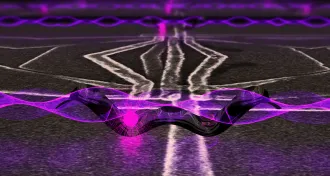 Quantum Physics
Quantum PhysicsQuantum computers go silicon
Scientists performed the first quantum algorithms in silicon, and probed quantum bits with light.
-
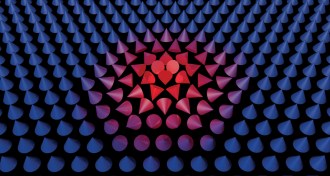 Materials Science
Materials ScienceSkyrmions open a door to next-level data storage
Skyrmions are tiny magnetic swirls that are hard to undo and may be perfect for miniaturizing electronics.
-
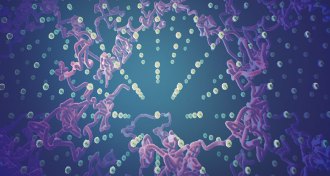 Physics
PhysicsLaser experiment hints at weird in-between ice
Scientists spot signs of an unusual phase of water called superionic ice.
-
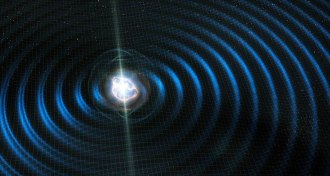 Physics
PhysicsGravity doesn’t leak into large, hidden dimensions
Gravitational waves from a recently observed neutron star merger offer no evidence of large, unknown dimensions.
-
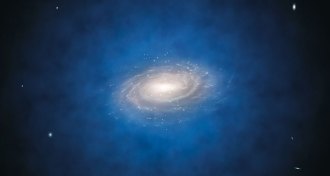 Particle Physics
Particle PhysicsClumps of dark matter could be lurking undetected in our galaxy
Dark matter, assumed to form featureless blobs, might clump together into smaller objects.
-
 Astronomy
AstronomyThe X-ray glow keeps growing after the recent neutron star collision
X-rays from a neutron star collision have been getting brighter, and scientists are debating why.
-
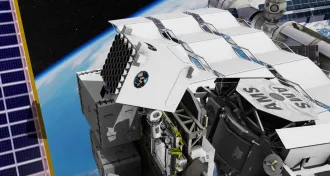 Astronomy
AstronomySpaceships could use blinking dead stars to chart their way
Timing signals from five pulsars allowed scientists to pinpoint an experiment’s place in space.
-
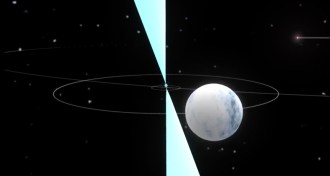 Astronomy
AstronomyTrio of dead stars upholds a key part of Einstein’s theory of gravity
A cosmic test fails to topple the strong equivalence principle.
-
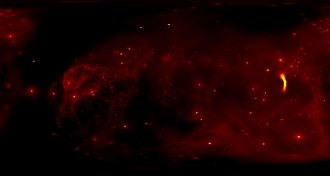 Astronomy
AstronomySee a 360-degree visualization of the center of the Milky Way
A 360-degree simulation, made with data from several telescopes, shows the center of the Milky Way as seen from the galaxy’s supermassive black hole.
-
 Particle Physics
Particle PhysicsMagnets with a single pole are still giving physicists the slip
Using data from particle accelerators and dead stars, scientists eliminate some possible masses for magnetic monopoles.
-
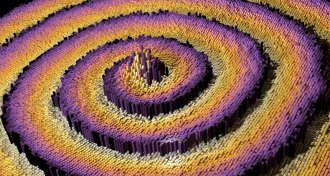 Physics
PhysicsA new kind of spiral wave embraces disorder
Newly discovered spiral wave chimera is disordered in its center.
-
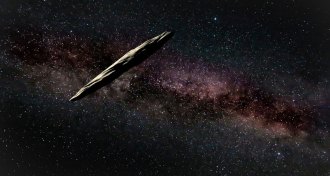 Astronomy
AstronomyOur first interstellar visitor may be a camouflaged comet
Originally thought to be a rocky asteroid, an interstellar traveler may have a comet’s icy heart.